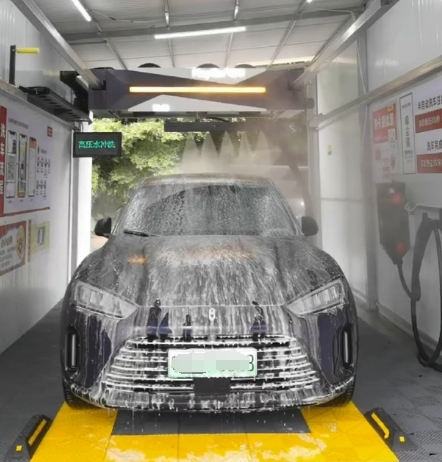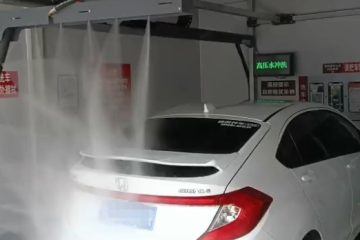The UK car wash industry is a dynamic and ever-evolving sector, and within it, automatic car washes are experiencing a surge in popularity. While traditional hand car washes still hold a significant market share, the appeal of speed, convenience, and often, a more consistent clean, is driving growth in the automated segment. This article explores the current state of the automatic car wash business in the UK, highlighting its trends, challenges, and future prospects.

The Rise of the Machines:
Several factors contribute to the booming automatic car wash market:
Time-pressed Consumers: Busy lifestyles mean less time for chores like car washing. Automatic washes offer a quick and efficient solution, typically completing a wash in under 10 minutes.
Technological Advancements: Modern automatic car washes boast sophisticated technology, from advanced washing systems and environmentally friendly detergents to contactless payment options and loyalty programs. These features enhance the customer experience and improve efficiency.
Investment and Expansion: The industry has seen significant investment in recent years, leading to the development of new, larger, and more technologically advanced facilities. This includes the rise of hybrid and tunnel washes, offering a wider range of cleaning options.
Environmental Concerns: Many automatic washes are adopting eco-friendly practices, using water-saving technologies and biodegradable cleaning products, appealing to environmentally conscious consumers.
Challenges Facing the Industry:
Despite its growth, the automatic car wash business faces some challenges:
Competition: The market is becoming increasingly competitive, with both established chains and smaller independent operators vying for customers. Differentiation through superior technology, customer service, and pricing strategies is crucial.
Water Usage and Environmental Regulations: Balancing the need for efficient cleaning with responsible water usage remains a key challenge. Meeting increasingly stringent environmental regulations requires investment in water-saving technologies and sustainable practices.
Staffing and Wages: While automation reduces the need for manual labor, skilled technicians are still required for maintenance and repairs. Attracting and retaining qualified staff can be challenging, especially in the face of rising wages.
Economic Fluctuations: Like many consumer-facing businesses, the car wash industry is vulnerable to economic downturns. Changes in consumer spending habits can significantly impact demand.
Future Trends:
The future of automatic car washes in the UK looks promising, with several trends likely to shape the industry:
Increased Automation: Expect further automation, potentially including AI-powered systems that optimize cleaning processes and reduce water and detergent usage.
Focus on Sustainability: Environmental concerns will continue to drive the adoption of eco-friendly practices and technologies.
Premium Services: Offering premium packages with additional services like waxing, detailing, and interior cleaning will help differentiate businesses and cater to a higher-spending clientele.
Digitalization: Online booking systems, loyalty programs, and contactless payments will become increasingly prevalent, enhancing customer convenience and engagement.
In conclusion, the automatic car wash business in the UK is a dynamic and growing sector. While challenges exist, the industry’s adaptability, technological advancements, and growing consumer demand point towards a bright future for those who can successfully navigate the competitive landscape and embrace sustainable practices.




